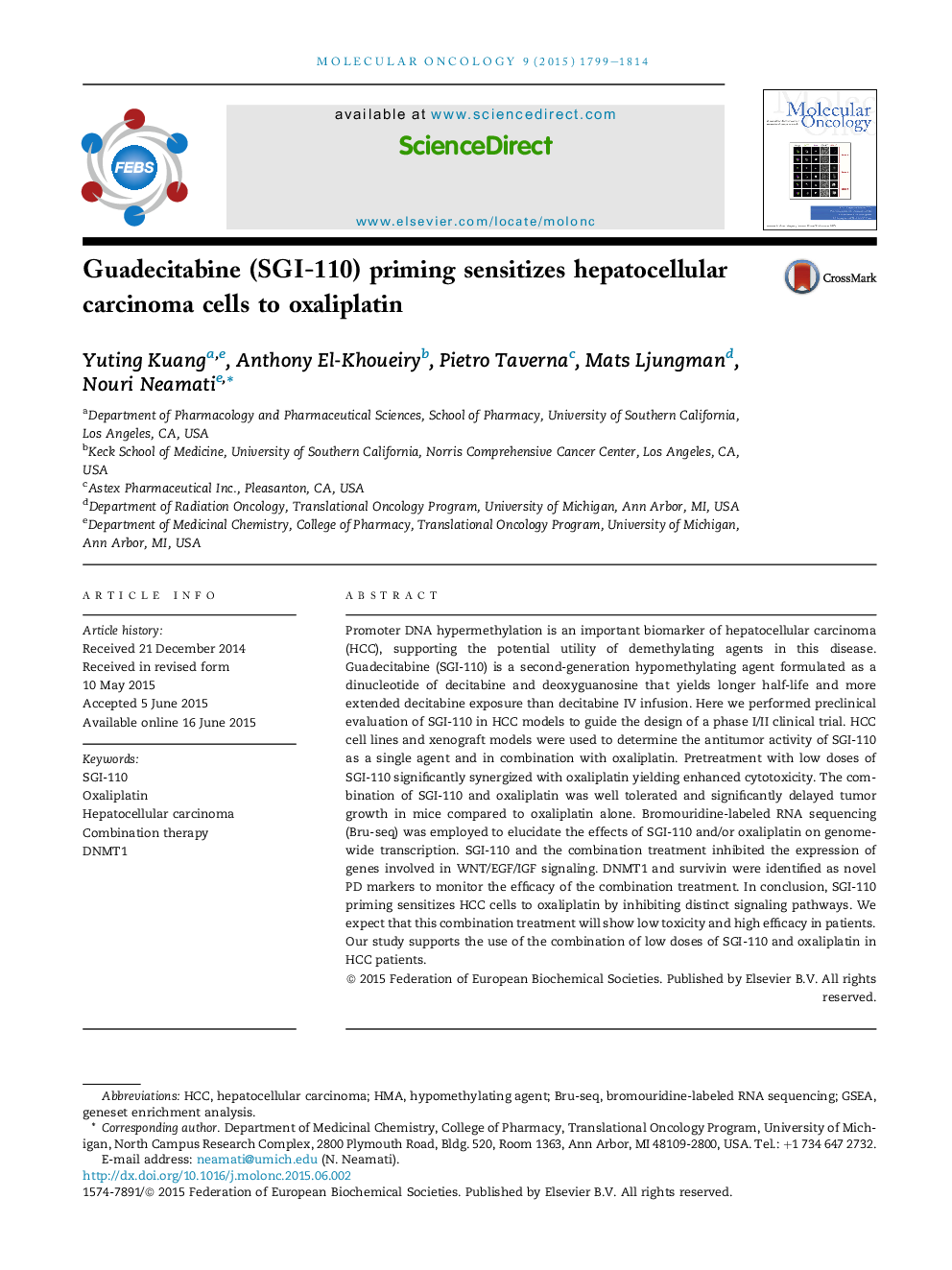| Article ID | Journal | Published Year | Pages | File Type |
|---|---|---|---|---|
| 2145599 | Molecular Oncology | 2015 | 16 Pages |
•SGI-110, a second generation HMA, significantly inhibits HCC cell proliferation.•Cytotoxicity of oxaliplatin is enhanced by SGI-110 priming in HCC cell lines.•Combination of SGI-110 and oxaliplatin at low doses delays HCC tumor growth.•WNT/EGF/IGF signaling are implicated in the synergistic response to SGI-110 and oxaliplatin.•DNMT1 and survivin are potential PD markers to monitor efficacy.
Promoter DNA hypermethylation is an important biomarker of hepatocellular carcinoma (HCC), supporting the potential utility of demethylating agents in this disease. Guadecitabine (SGI-110) is a second-generation hypomethylating agent formulated as a dinucleotide of decitabine and deoxyguanosine that yields longer half-life and more extended decitabine exposure than decitabine IV infusion. Here we performed preclinical evaluation of SGI-110 in HCC models to guide the design of a phase I/II clinical trial. HCC cell lines and xenograft models were used to determine the antitumor activity of SGI-110 as a single agent and in combination with oxaliplatin. Pretreatment with low doses of SGI-110 significantly synergized with oxaliplatin yielding enhanced cytotoxicity. The combination of SGI-110 and oxaliplatin was well tolerated and significantly delayed tumor growth in mice compared to oxaliplatin alone. Bromouridine-labeled RNA sequencing (Bru-seq) was employed to elucidate the effects of SGI-110 and/or oxaliplatin on genome-wide transcription. SGI-110 and the combination treatment inhibited the expression of genes involved in WNT/EGF/IGF signaling. DNMT1 and survivin were identified as novel PD markers to monitor the efficacy of the combination treatment. In conclusion, SGI-110 priming sensitizes HCC cells to oxaliplatin by inhibiting distinct signaling pathways. We expect that this combination treatment will show low toxicity and high efficacy in patients. Our study supports the use of the combination of low doses of SGI-110 and oxaliplatin in HCC patients.
